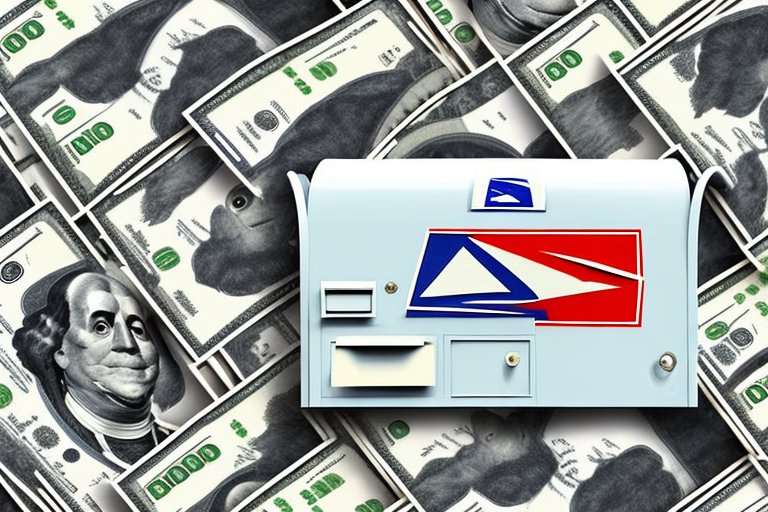Understanding the UPS Third Party Billing Fee
As a business owner who relies on UPS shipping services, you may have encountered a charge on your invoice labeled the “Third Party Billing Fee.” This fee can raise several questions: What does it entail? Why does UPS impose it? How can you manage or mitigate this expense? In this article, we delve into the intricacies of the UPS Third Party Billing Fee, providing comprehensive insights and practical tips to help you navigate it effectively.
What is the UPS Third Party Billing Fee?
The UPS Third Party Billing Fee is an additional charge applied when a customer opts to have UPS bill a third party for shipping services instead of the sender or recipient directly covering the costs. This scenario often arises when shipping on behalf of a vendor or client, allowing the third party to assume responsibility for the shipping expenses.
Typically, this fee is a percentage of the total shipping cost and can vary based on the agreement terms between the customer and UPS. Unlike the Collect on Delivery (COD) Fee, which requires the recipient to pay for shipping upon delivery, the Third Party Billing Fee is specifically for situations where a third party handles the payment.
Key Differences Between Third Party Billing and COD Fees
- Third Party Billing: The billing is directed to a third party, such as a vendor or client.
- COD Fee: The recipient pays for the shipping charges upon delivery of the package.
Reasons Behind UPS Charging the Third Party Billing Fee
UPS explains that the Third Party Billing Fee is designed to cover the additional administrative and processing costs involved in billing and collecting payments from a non-account holder. This includes:
- Verifying billing information
- Issuing invoices to third parties
- Managing follow-ups for outstanding payments
These extra administrative tasks require resources, justifying the additional fee. However, some customers may find this fee unexpected and burdensome.
Impact on Customers
For businesses that frequently use third-party billing, these fees can add up significantly, affecting profit margins and cash flow. As a result, some businesses consider alternatives to avoid or reduce these costs.
Current Rates and Fee Structure
As of 2023, the UPS Third Party Billing Fee typically ranges from $20 to $30 per shipment, with higher rates applicable to international shipments. The exact fee structure depends on factors such as:
- Shipping destination
- Package weight and dimensions
- Service level chosen
It's advisable to consult the latest UPS fee schedule or contact UPS directly to obtain the most accurate and up-to-date information.
Additional Fees to Consider
Beyond the Third Party Billing Fee, UPS may impose other charges, including:
- Fuel surcharges
- Residential delivery fees
- Extra handling fees for oversized or heavy packages
Carefully reviewing invoices helps businesses stay informed about all applicable fees and manage shipping costs more effectively.
Strategies to Avoid the UPS Third Party Billing Fee
Businesses seeking to minimize or eliminate the UPS Third Party Billing Fee can consider the following strategies:
- Direct Billing: Bill shipments directly to your own UPS account rather than a third party.
- Client Negotiation: Negotiate with clients or vendors to include the billing fee in their payments.
- Alternative Shipping Carriers: Explore other carriers that may offer third-party billing without additional fees.
Pros and Cons of Each Strategy
- Direct Billing: Offers greater control but may require upfront costs.
- Client Negotiation: Can shift fees to clients but may impact client relationships.
- Alternative Carriers: Potential cost savings but may involve switching logistics partners.
Alternative Billing Options with UPS
If avoiding the Third Party Billing Fee is not feasible, consider these alternative UPS billing options:
- Collect on Delivery (COD): UPS collects payment from the recipient at the time of delivery.
- Bill Receiver: Charges the recipient's UPS account directly for the shipment.
- Bill Third Party – Consignee: Similar to the standard third-party billing but tailored to specific recipient accounts.
Each option has its own set of fees and policies, so it's essential to evaluate which method aligns best with your business needs.
The Impact on Small Businesses
For small businesses, the UPS Third Party Billing Fee can significantly impact operating costs. With often limited profit margins, additional fees may strain financial resources. Understanding and managing these fees is crucial for maintaining profitability and ensuring sustainable growth.
Financial Planning and Budgeting
Incorporate the Third Party Billing Fee into your financial planning by:
- Adjusting product pricing to account for shipping fees.
- Allocating a specific budget for shipping expenses.
- Monitoring shipping patterns to identify cost-saving opportunities.
Legal Considerations of the Third Party Billing Fee
Businesses must be aware of the legal implications associated with the UPS Third Party Billing Fee, especially in contractual agreements. Key considerations include:
- Disclosure: Clearly inform clients or vendors about any additional shipping fees.
- Contract Terms: Include specific billing terms to avoid misunderstandings.
- Compliance: Ensure that fee structures adhere to contractual and legal standards.
Consulting with legal experts can help in drafting agreements that protect your business interests.
Comparing UPS with Other Shipping Carriers
When evaluating shipping carriers, it's beneficial to compare how different companies handle third-party billing fees. For instance:
- FedEx: May have similar third-party billing fees with varying structures.
- DHL: Often imposes fees for third-party billing, especially on international shipments.
- USPS: Generally offers more flexible billing options with fewer additional fees.
Assessing the fee structures of various carriers can help businesses select the most cost-effective and suitable shipping partner.
Future Outlook for UPS Third Party Billing Fees
The landscape of shipping fees is continually evolving, influenced by factors such as economic conditions, operational costs, and technological advancements. Potential future changes to the UPS Third Party Billing Fee may include:
- Fee Adjustments: UPS may recalibrate fees to better reflect administrative costs.
- Enhanced Billing Options: Introduction of new billing solutions to offer more flexibility.
- Competitive Pricing: Increased competition may lead UPS to adjust fees to remain attractive to businesses.
Staying informed about these trends enables businesses to anticipate changes and adapt their shipping strategies accordingly.
Conclusion
The UPS Third Party Billing Fee is an important consideration for businesses that utilize third-party billing options for shipping. Understanding its implications, exploring alternatives, and implementing effective strategies can help mitigate the financial impact of these fees. By staying informed and proactive, businesses can optimize their shipping processes and maintain healthy financial operations.
Reputable Resources for Further Information
- UPS Fees and Fuels - Official UPS page detailing various fees.
- FedEx Billing Terms - Information on FedEx's billing options and fees.
- USPS Business Pricing - Overview of USPS business shipping rates and options.
- PwC Global Shipping Survey - Insights and statistics on global shipping trends.






















